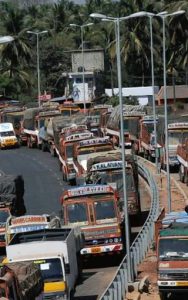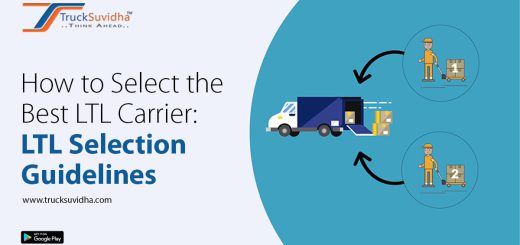Motor Vehicles Bill favours big firms
The proposed Motor Vehicles amendment is unduly harsh on drivers, truckers and small players, without addressing the causes of accidents.
The Motor Vehicles (Amendment) Bill, 2017 has been heralded as a measure to reduce road accidents. But, except the provisions for higher penalty for drivers and operators, there is no mention of any other measures to prevent accidents. Only drivers are blamed. Factors such as traffic discipline, over-congestion, growing number of vehicles beyond the capacity of roads have not been been addressed in this Bill.
Strangely, Section 135 of the Bill states that the Central government will formulate a scheme to provide amenities to study and analyse the reasons for accidents. Before completing such a study, an Act to solve the problem of accidents has been presented to Parliament.
The real factors
According to a study conducted by Professor Geetam Tiwari of IIT-Delhi only 10 per cent of the accidents occur due to the drivers’ fault. Long duty hours, stress and strain on the drivers, particularly, the truck drivers are also contributory factors. These facts were not considered while formulating this Bill.
There seems to be a hidden agenda behind this Bill which becomes clear if one studies its other provisions — to regulate and privatise the regulatory mechanism, right from registration of vehicles to inspection, through concentration of all powers with the Centre in the name of simplification and promoting competition. This will make the existing State-based regulatory and disciplinary mechanism redundant.
State Transport Undertakings (STUs) record the lowest accident rates in the country. But this Bill is going to badly hit these STUs. What was needed was to expand and strengthen the STUs to reduce accidents. Contrary to this, Sections 66, 66A, 66B, 67, 72, 74, 88A, 92, 94 and 96 go against the interests of STUs. Further, third party insurance is made mandatory for STU buses putting a big burden on the STUs. The new Section 66A would deprive the State Governments from formulating schemes and also granting permits. So, it is anti-Constitutional and encroaches upon the powers of States.
The Bill will lead to closure of STUs and retrenchment of lakhs of employees.
Vested interests
Section 93 of the Bill introduces the new concept of ‘Aggregator’. But what happened after Uber and Ola entered the taxi sector? They assured the drivers that whoever attaches their vehicles to the companies will earn ₹1,50,000 per month. But after a few months, drivers realised that they were getting a meagre amount and many of them left the companies. These aggregators are also a threat to auto rickshaws drivers, many of whom are self-employed.
Take the truck industry. Truck operators are not able to meet even their operational expenses and a good number of trucks have been seized by private financial companies for payment default. Why is this happening? There has been a huge spike in diesel prices from June 2014 to June 2018 adding to the woes of the truckers.
As for insurance, the IRDA has enhanced third party insurance premium by almost 100 per cent over four years. In reply to a petition filed by All India Road Transport Workers’ Federation, the IRDA said that it does not have the details of premium collected and payments made to accident victims. Without these details how can IRDA hike the premium every year?
The Bill lays down that branded company spares are to be used, which will drive small enterprises in automobile spares and their dealers out of business. Also servicing and repairs are to be undertaken only in company service centres. The road-side mechanics will lose their livelihood.
Further, by allowing testing centres and big driving schools, what will happen to the existing driving schools?
By giving away duties and responsibilities to private agencies, transport department employees will face job insecurity. Segregation of roads, rectification of defects in the construction of roads, incorporation of road safety and traffic rules in the school curriculum from 5th Standard to 12th Standard, both in Central and State syllabi, reduction of long duty hours and stress and strain on drivers, provision of parking, resting places, motel facilities on highways and strengthening the public transport system by discouraging personalised transport, would really help reduce accidents. The Motor Vehicles (Amendment) Bill is not aimed at reducing accidents. It is clearly batting for big companies and a threat to transport workers.
Source: https://goo.gl/sxxuVm





Recent Comments